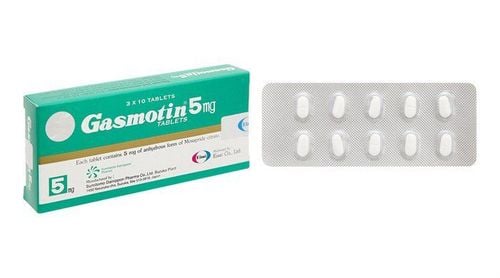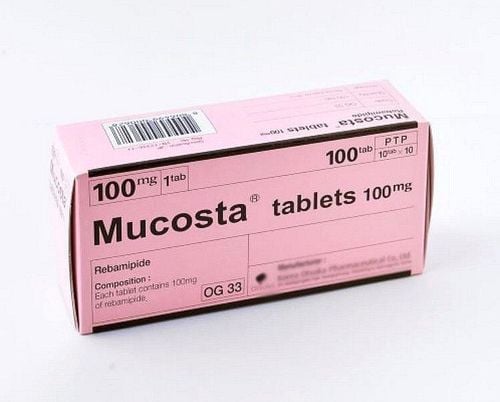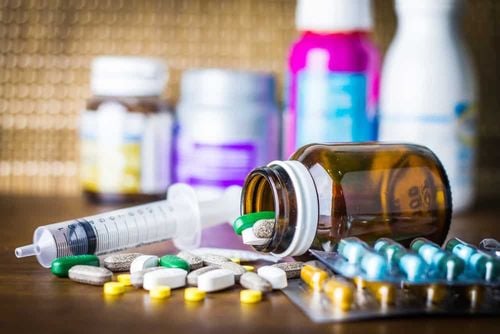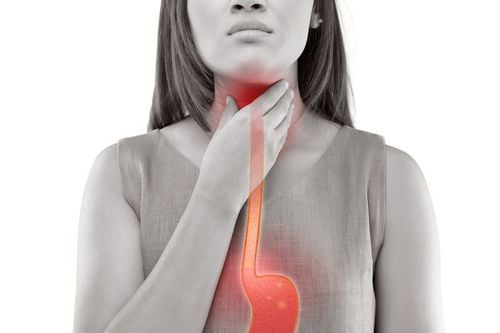This is an automatically translated article.
When the mucosal barrier is weakened, the elements in the stomach will damage the mucosa. The extent of damage to the gastric mucosa is divided into many different degrees, from congestive inflammatory lesions to erosive gastritis.
1. What is erosive gastritis?
Erosive gastritis is a condition in which aggressive factors damage the stomach lining causing scratches. This condition is also known as erosive gastritis.
Gastritis occurs when there is an imbalance of offensive and protective factors. The main attacking factor is gastric juice and the protective factor is the mucus layer. For some reason, an increase in gastric juice, a decrease in mucus, or a combination of both will cause stomach acid to attack the lining of the stomach. At first, it can cause only mucosal congestion, over time, it can form scratches or even ulcers in the stomach.
Erosive gastritis usually does not cause obvious symptoms when it first appears. Then, when it gets worse, it will lead to manifestations such as indigestion, nausea, vomiting, belching, heartburn, abdominal pain in the epigastrium. If severe, there are also manifestations of gastrointestinal bleeding from mild to severe, manifestations can be seen as vomiting blood, passing black stools.
To diagnose gastritis, the gold standard is to use gastroscopy. Through endoscopy, it is possible to assess the location, extent, and shape of the lesion. In case of gastrointestinal bleeding, endoscopy can be combined with treatment to stop bleeding.
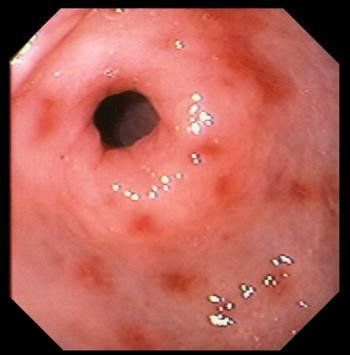
Viêm dạ dày ăn mòn là chỉ tình trạng các yếu tố tấn công làm tổn thương niêm mạc dạ dày
2. Causes of erosive gastritis
Causes of erosive gastritis may include:
Use of non-steroidal anti-inflammatory drugs (NSAIDs): An unwanted effect of anti-inflammatory drugs causes gastritis. The characteristics of drug-induced gastritis are often multifocal, which can cause bleeding. Statistically half of patients receiving long-term nonsteroidal anti-inflammatory drugs develop gastritis during endoscopy, but dyspeptic symptoms develop in less than a quarter of these patients. Helicobacter pylori: Nowadays, it is recognized that most of the causes of stomach ulcers are related to HP bacteria. Heavy drinking: Erosive gastritis accounts for about 20% of upper gastrointestinal bleeding episodes among alcoholics. Prolonged stress: Stress causes very serious mucosal damage, it is related to neurological factors. These patients are often accompanied by subepithelial hemorrhage and develop within 18 hours in the majority of critically ill patients. High risk factors include respiratory failure, coagulopathy, trauma, burns, low blood pressure, central nervous system damage, liver failure, and kidney failure. Patients with multiple high-risk factors have a higher risk of bleeding and a higher mortality rate. Some other causes such as: Radiation contamination, damage to blood vessels, direct trauma such as gastric tube placement, ...
3. Consequences of erosive gastritis
If the condition of the stomach lining is damaged and eroded by gastric juice, if not treated properly and early, it can lead to more severe damage.
From every small scratch on the stomach lining is not controlled, the attacking factors still affect that scratch. Making the hurt deeper and wider. This will cause complications such as:
Stomach ulcer: When attacked by gastric juice, the mucosal layer is damaged and damage to the muscle layer of the stomach. Causes ulcers with more aggressive manifestations. Gastric perforation: When the ulcer is deep and wide, there is a risk of damage to the serosa of the stomach. Causing gastric perforation, gastric juice from the stomach into the abdomen, causing damage to the abdominal organs and peritonitis. This is a surgical emergency requiring early intervention. Gastrointestinal bleeding: If the level of damage is severe, it will cause severe bleeding. Risk to the patient's life

Ăn uống đảm bảo vệ sinh giúp phòng tình trạng viêm trợt niêm mạc dạ dày
4. How to prevent erosive gastritis
Some measures to help prevent gastric mucosal inflammation include:
Eat hygienically, wash your hands before eating, eat cooked and drink hot to limit bacteria from entering causing gastritis. Eating in moderation: Many studies show that eating right at the right time will form a conditioned reflex, support proper digestive gland secretion and benefit digestion. Should eat 3 full meals a day and eat at the right time, should not let the stomach be too hungry or too full because then the stomach acid will secrete a lot, affecting the digestive activity. Do not eat and drink water at the same time, drink 1 glass of water about 30 minutes before a meal and after eating should only drink a few more sips after eating. Should eat slowly, chew thoroughly to be exposed to more enzymes in saliva, reducing the burden on the stomach. Limit eating fried foods that are difficult to digest, foods with a lot of salt, and cold raw foods. Avoid stressful work, arrange reasonable sleep time. Avoid staying up late and eating more at night. Erosive gastritis can have serious consequences if not treated properly. So, if there are symptoms of stomach disease, you should not be subjective, it is necessary to visit a doctor and it is important to change a suitable lifestyle.
Please dial HOTLINE for more information or register for an appointment HERE. Download MyVinmec app to make appointments faster and to manage your bookings easily.




